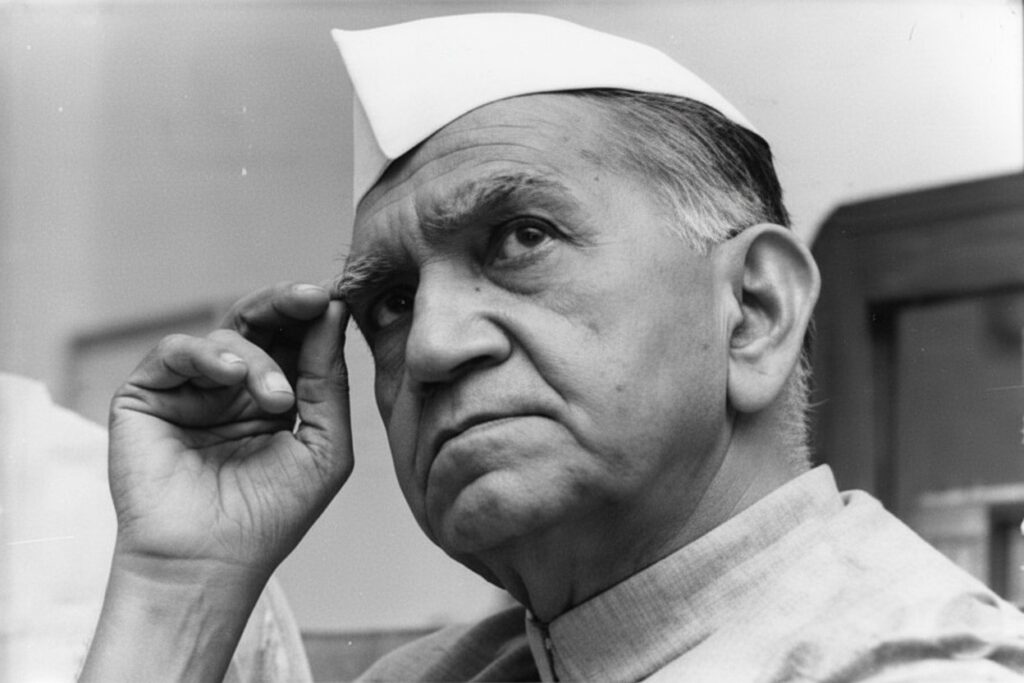Trending

Fakhruddin Ali Ahmed, born on May 13, 1905, was a pivotal figure in Indian political history, becoming the country’s fifth president and the second Muslim to hold the position. His term was notable for his commitment to constitutional ideals and democratic government, and it occurred at a watershed moment in India’s political history.
During a time of great upheaval, he had a tremendous impact on the legal and political framework of the country. The purpose of this article is to showcase his contributions to Indian politics and explore his impact as President during what is often regarded as a golden age of Indian democracy.
Fakhruddin Ali Ahmed was born in Delhi to an Assamese Muslim family. His grandfather was a well-known Islamic scholar, while his father, Colonel Zalnur Ali, served in the Indian Medical Service, becoming Assam’s first medical graduate. His mother was the daughter of the Nawab of Lahore’s daughter, and Fakhruddin was one of the ten children.
He had his early schooling in Gonda and Delhi before enrolling at St. Stephen’s College in Delhi and then Cambridge University in England. He received his Tripos in History from St. Catharine’s College and his legal qualifications from Inner Temple in 1928. After returning to India, he began his legal career at the Lahore High Court before relocating to Guwahati, where he became Advocate General and co-founded the Assam High Court Bar Association.
Ahmed’s political career started when he joined the Indian National Congress. He was a member of the Assam Pradesh Congress Committee and was elected to the Assam Legislative Assembly in 1937, serving as Finance, Revenue, and Labour Minister under Chief Minister Gopinath Bardoloi. He lost his constituency in the prior 1946 elections and was then appointed as Advocate General of Assam. In 1952, he was elected to the Rajya Sabha. He then won state elections in 1957 and 1962 and served in several ministerial positions in the Assam administration.
Fakhruddin Ali Ahmed helped Muhammed Saadulah, a former Muslim League leader, join the Congress Party in 1951. He was instrumental in opposing Assam’s Prevention of Infiltrators Plan (1951), which tried to detect and expel illegal migrants, warning the Congress that it would lose Muslim support in Assam and elsewhere.
In July 1974, the Congress Party, led by Indira Gandhi, nominated Fakhruddin Ali Ahmed as its candidate for President, overlooking Vice President Gopal Swarup Pathak. The presidential election was held on 17 August, and Ahmed secured about 80.18 % of the vote over Tridib Chaudhuri. He was officially declared elected on 20 August and sworn in as the fifth President of India on 24 August 1974.
Ahmed became the second Muslim President of India and was the first to be elevated directly from the Union Cabinet. His election followed new rules under the amended Presidential and Vice‑Presidential Elections Act which required a security deposit, and nominations to be supported by ten proposers and ten seconders.
On the night of 25 June 1975, President Fakhruddin Ali Ahmed, acting on Prime Minister Indira Gandhi’s suggestion, declared a national Emergency under Article 352, claiming “internal disturbance”. The Cabinet was only informed the next morning, and opposition leaders were jailed, prompting press restrictions. Gandhi then addressed the nation via All India Radio shortly thereafter.
The Emergency lasted approximately 21 months, ending on March 21, 1977. During this time, civil liberties were suspended, press freedom was restricted, and numerous opposition leaders were detained. Ahmed’s role is widely regarded as passive: he supported the declaration and subsequent constitutional modifications but did not oppose them strongly.
Fakhruddin Ali Ahmed was heavily involved in India’s freedom fight, having joined the Congress in 1931, participating in the Individual Satyagraha in 1940, and spending three and a half years in prison during the Quit India Movement (1942). During his tenure as Minister of Finance and
Fakhruddin Ali Ahmed, India’s fifth President, was a prominent figure in pre- and post-independence politics. As Assam’s Finance Minister, he implemented an agricultural income tax that impacted the tea business. He began as a freedom fighter and ultimately rose to significant Union Cabinet positions. Though he was recognised for his inclusive politics, his administration is best remembered for signing the contentious 1975 Emergency, which made claims of establishing political stability during his reign highly debatable.
Fakhruddin Ali Ahmed was an important figure not just in India’s freedom movement, but also in creating its post-independence democratic structure. His endeavours in Assam boosted agricultural and industrial development, while his efforts to involve the Muslim population in the Congress aided national unification and unity.
Though his position during the Emergency remains contentious, his overall career demonstrates a dedication to democratic values and constitutional duty. This reflection is part of a larger examination by Adv. Abdul Mulla, whose legal writings on platforms such as www.lifeandlaw.in and www.asmlegalservices.in look at historical legal-political intersections in India’s constitutional evolution.
Adv. Abdul Mulla (Mob. No. 937 007 2022) is a seasoned legal professional with over 18 years of experience in advocacy, specializing in diverse areas of law, including Real Estate and Property Law, Matrimonial and Divorce Matters, Litigation and Dispute Resolution, and Will and Succession Planning. read more….
Copyright BlazeThemes. 2025